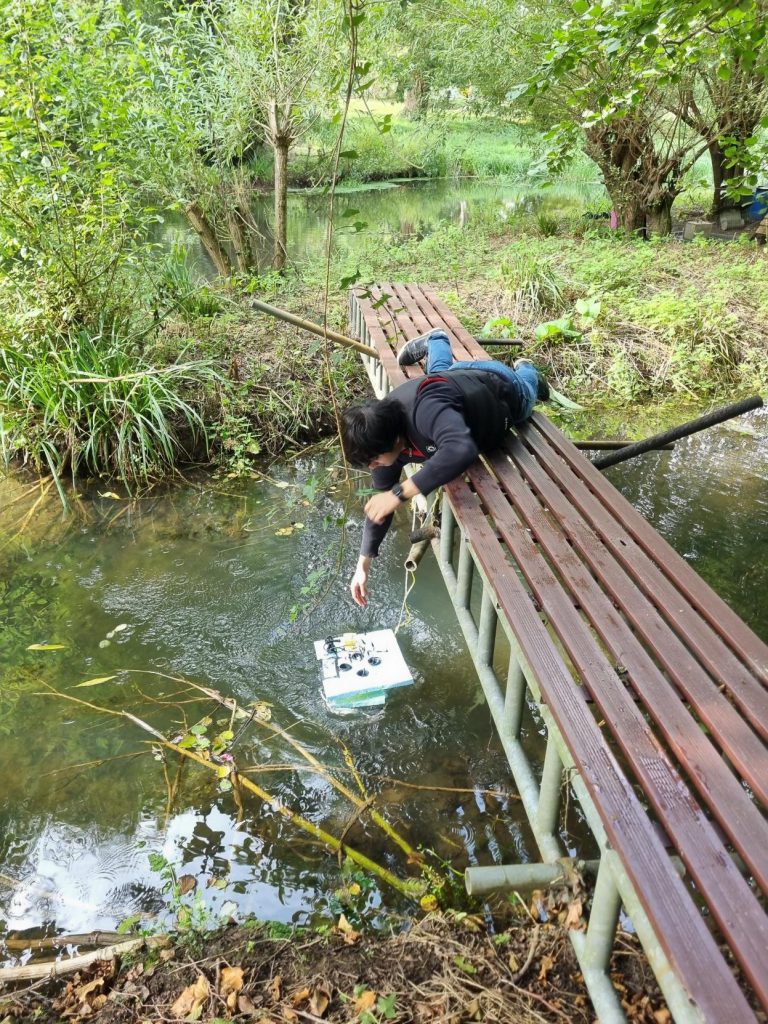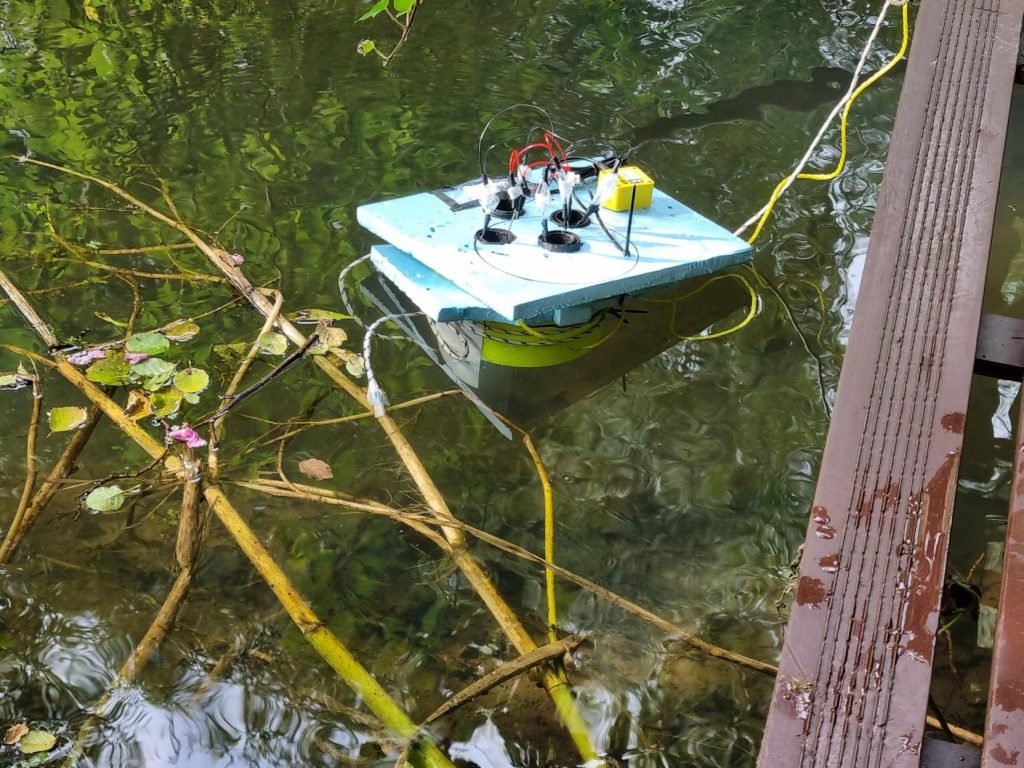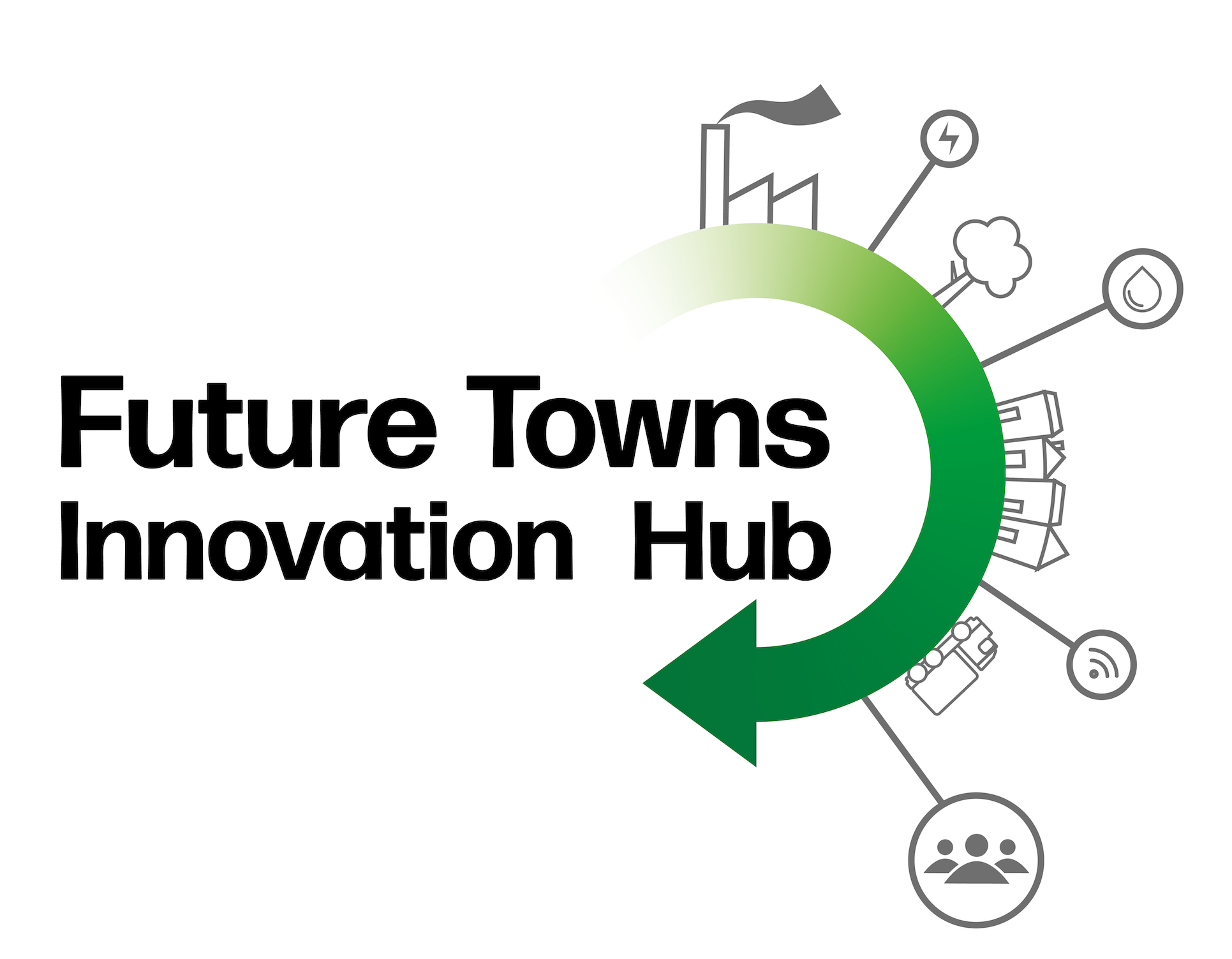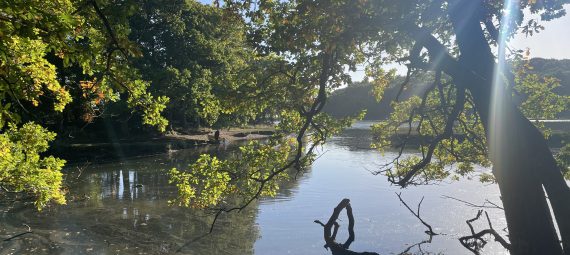The Upper Hamble River area in Hampshire boasts a variety of businesses, locations of great historical significance, and is renowned for leisure activities like wild swimming and paddle boarding. However, in recent times, there has been growing concern regarding the water quality and its suitability for recreational activities.
Botley Parish Council approached The Future Towns Innovation Hub for help with monitoring the quality of the water in the river, we then assembled expertise from the Water and Environmental Engineering Group, along with funding provided by the University’s Civic team. The resulting collaboration saw prototype, real-time water quality sensors placed in the River Hamble for testing and verification.
Cutting-edge Biosensors
This project provides an application for the University of Southampton’s cutting-edge research into Microbial Fuel Cells (MFCs) and their potential use as real-time, continuous sensors to monitor water conditions. The technology harnesses the ability of microorganisms to generate electricity by breaking down organic matter, which in turn serves as a key indicator of water quality at the selected locations.
River water collected from the site was used to inoculate one of two MFC modules in the lab, while the second module was inoculated with standard activated sludge to serve as a control. This setup creates a benchmark for comparing the performance of the river water sample. The resulting data will be utilized to assess the quality of the river water.
MSc Project
The project also provided University of Southampton Masters student, Parikshit (see photos), with the opportunity to complete fieldwork for his dissertation. Parikshit worked on constructing the enclosures for the MFC sensors, placing them on site, and has helped in analysing the data.
Next Steps
The next phase of the project involves assembling casings, each containing four MFCs, and preparing them for laboratory testing to establish baseline energy generation. Once this baseline is determined, the casings will be deployed at selected sites to function as sensors. Data from these sensors will be collected weekly and analysed to track trends in water quality, ultimately helping to inform potential solutions for improvement.
Further funding is being sought for future development, including how to digitise this live sensor data, so that the public can check the quality of the water at any given time, before swimming or using the river for other recreational purposes.



If you would like more information or want to get involved, then please join our Clean Water South Network, by emailing futuretowns@soton.ac.uk

